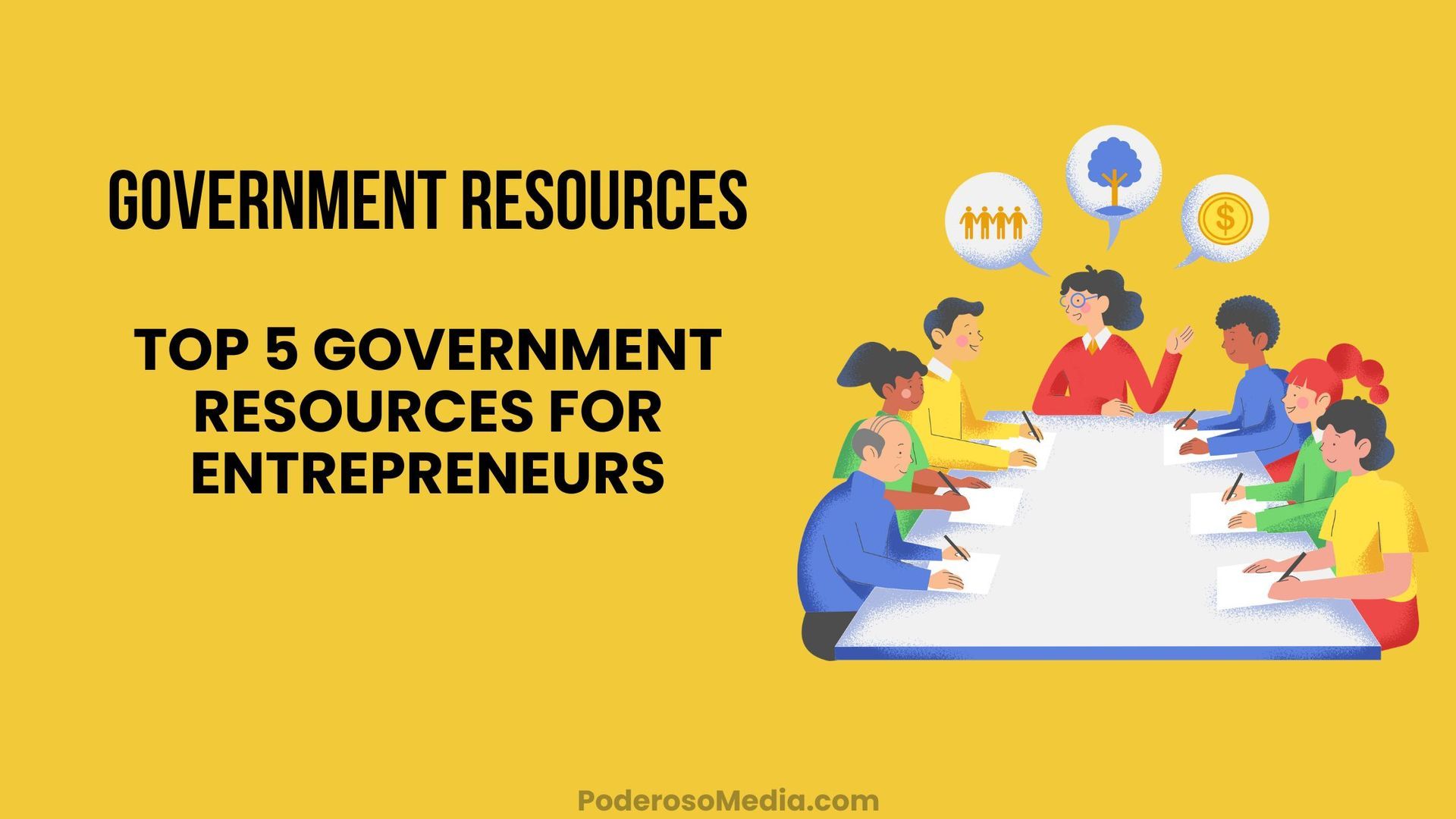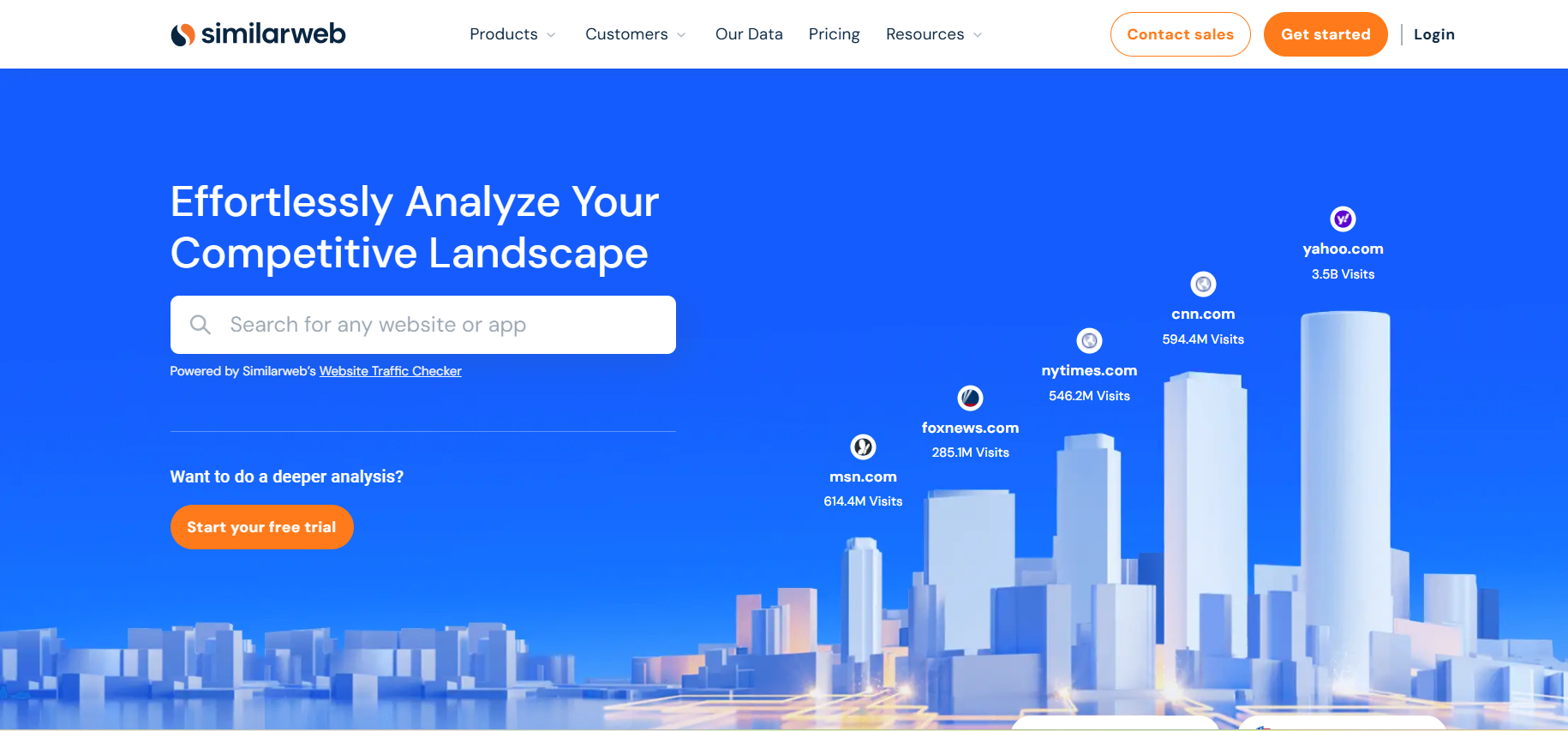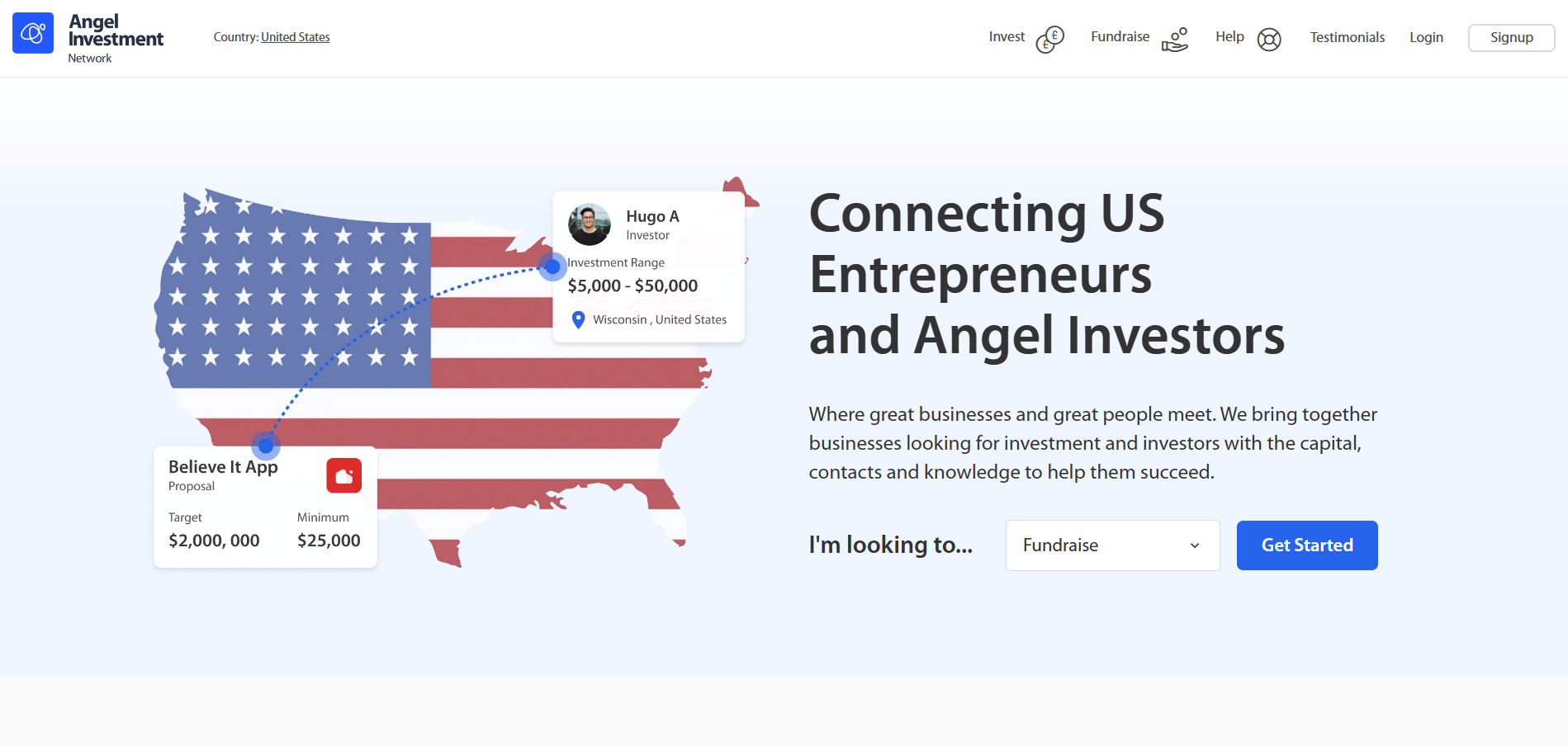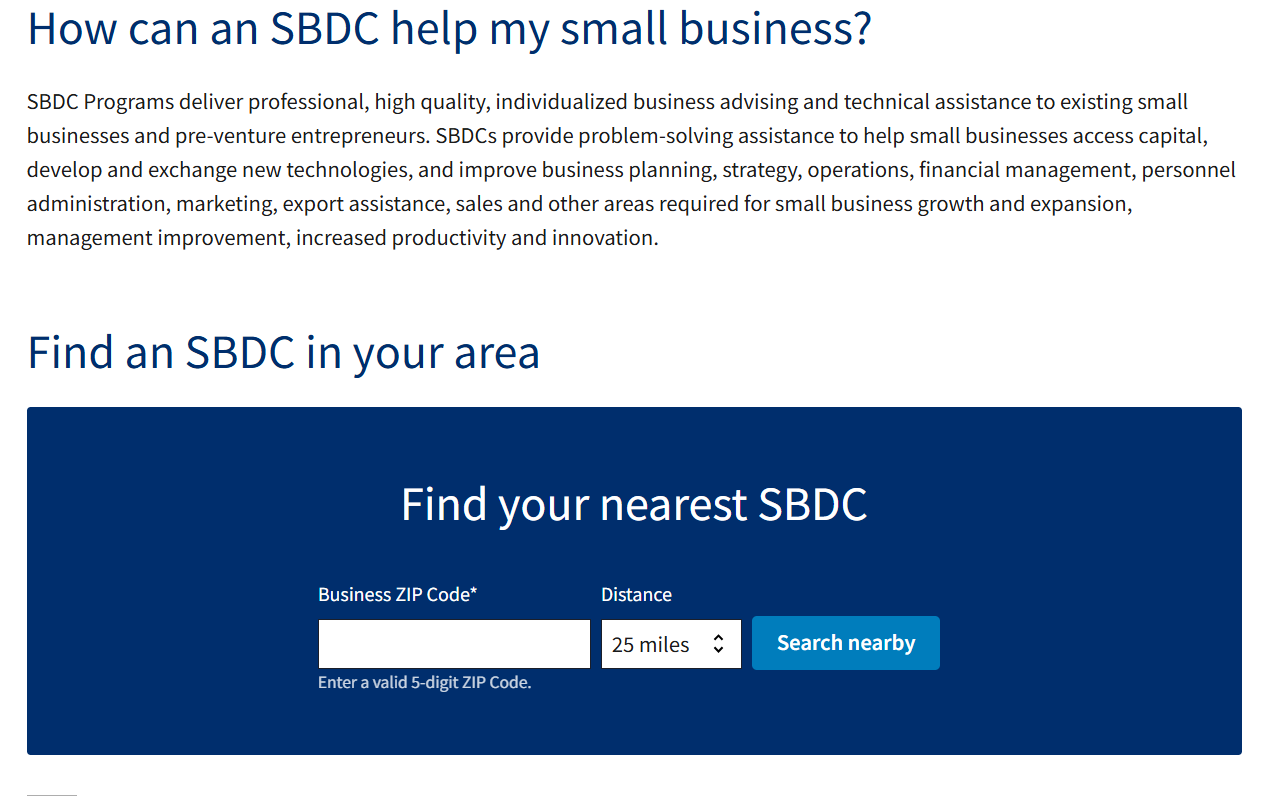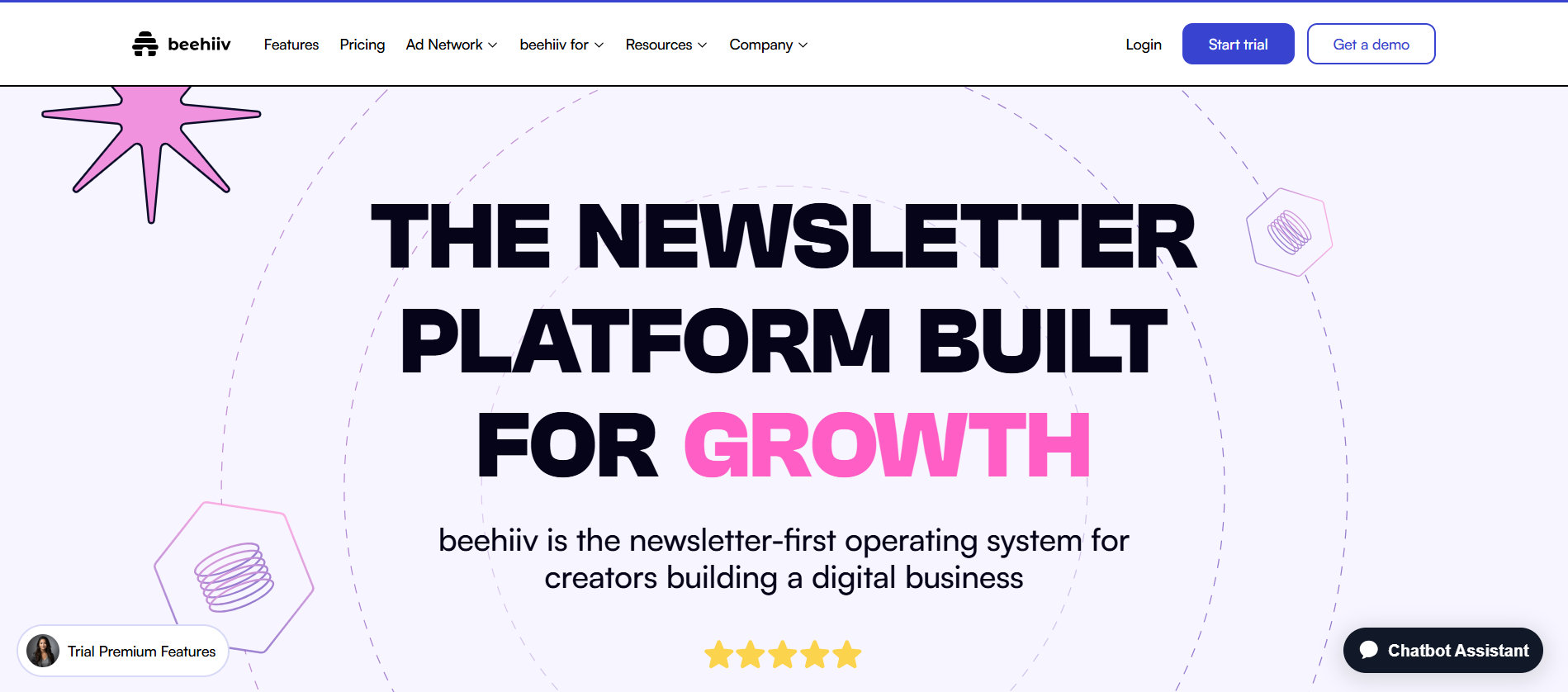
So, you’re dreaming of being your own boss, eh? Are you eager to launch a venture that reflects your passion and skills but not so sure how to start a business? Well, you're in the right place.
Many new businesses fail within their first year. This often stems from a lack of preparation and a poor understanding of the steps involved. A step-by-step approach is important when considering how to start a business.
This guide provides actionable steps on how to start a business, covering everything from refining your business idea to securing funding and navigating the legal landscape. Whether starting a business young or seeking a change, understanding this process is your first step toward entrepreneurial success.

Refining Your Business Idea
Learning how to start a business begins with a solid business idea. A good business idea alone isn’t enough for a successful business. A profitable business blends what you enjoy, your skills, and real market demand.
Validating Your Idea
Market research is crucial because it reveals if your business idea is viable. This involves primary research, interacting directly with potential customers, and understanding their preferences, behaviors, and backgrounds.
Conducting Market Research
When understanding your target audience, gathering feedback from diverse sources is essential for your small business.
You can do this through surveys, interviews, and focus groups.
Surveys
Online or offline questionnaires allow you to collect quantitative and qualitative data from a large sample size. Survey tools are a great way to validate and test your business ideas.
Use free tools like Hub Spot's Free Form Builder or good ol' classic Google Forms.
Interviews
In-depth, one-on-one conversations that provide rich, qualitative insights into your target audience's thoughts, feelings, and behaviors.
In my experience, it's best to record online interviews and convos using a tool like Otter AI to re-watch the interview and get a complete transcript with a high-level summary. (I've personally used Otter.AI for all my online interviews.)
Focus Groups
Small, structured discussions with a representative group allow you to thoroughly explore specific topics and test out ideas. Focus groups are an underrated choice to validate your business ideas.
You can conduct virtual focus groups using tools like FocusGroupIt and Recollective.
Use Secondary Research
To better understand your target market for your small business and business plan, combine primary insights with secondary research, which is existing information from other sources, like reports, articles, or surveys, to learn about its market and customers.
This includes data found in:
- Census reports.
- Industry studies.
- Online surveys.
- Focus groups.
Pro Tip: Check out MarketResearch.com for industry insights in ANY field.
Avoid Relying on Feedback from Family and Friends
While seeking feedback from those closest to you is natural, it's important to avoid using input from family and friends when formulating your small business and business plan. They may not accurately represent your target demographic, leading to biased or misleading insights.
Analyze Your Competitors
Know your competitors' strengths and weaknesses to gain a competitive edge. This knowledge will help you identify opportunities to outshine them and attract more customers to your small business.
Research Their Products or Services
Understand the features, benefits, and quality of your competitors' products or services.
Ask yourself:
- What are their unique selling points?
- How do their offerings differ from yours?
- What are the customer pain points they're trying to solve?
Pricing Strategies
Analyze your competitors' pricing models to determine:
- Their pricing structure (e.g., subscription-based, one-time fee, or freemium).
- How they position their products or services in terms of value.
- What discounts or promotions they offer to attract customers.
Marketing Tactics
Study your competitors' marketing strategies to learn:
- Which channels they use to reach their target audience (e.g., social media, email, paid advertising).
- The type of content they create (e.g., blog posts, videos, podcasts).
- How they measure the success of their marketing efforts.
- Pro Tip: UseSimilarWeb to analyze your competitors' marketing and gain an edge in your small business.
Customer Engagement
Evaluate your competitors' customer engagement strategies to understand:
- How they interact with their customers (e.g., customer support, social media, email).
- What types of content they create to educate and entertain their audience.
- How they encourage customer loyalty and retention.
Identify Opportunities
Look for ways to differentiate your small business from the competition. Consider:
- Offering something unique or better.
- Filling a gap in the market.
- Providing a service tailored to a specific group's needs.
- Finding a niche in a saturated market.
Remember: market research isn't a "one and done" thing. Industries are always shifting and evolving, and your small business will need to adapt, or you'll get left behind.
How to Start a Business: Your Business Plan
Let's go step-by-step on how to start a business by creating a business plan.
Create an Executive Summary
The first step in creating your business plan is crafting an executive summary, a concise one—or two-page overview of your small business.
I recommend this Business News Daily guide on writing a killer executive summary. Following this, include a detailed business description.
Business Description and Market Analysis
In your business description, highlight the problems your product or service solves. Use this information to support your market analysis, a thorough assessment of your industry that explains where your small business fits within the market landscape.
Organizational Overview
Next, present an organizational overview and describe your small business structure and operational plan. Remember to include your mission statement, clearly stating why you're doing what you do and the values your business upholds.
SWOT Analysis
Carefully detail your products or services, emphasizing the benefits they offer to customers. Incorporate a SWOT analysis to provide insights into your small business's strengths, weaknesses, opportunities, and threats. This analysis can highlight areas for improvement and help you consider your business idea's scalability.
Check out Investopedia's guide on performing a SWOT analysis if this is your first time doing one.
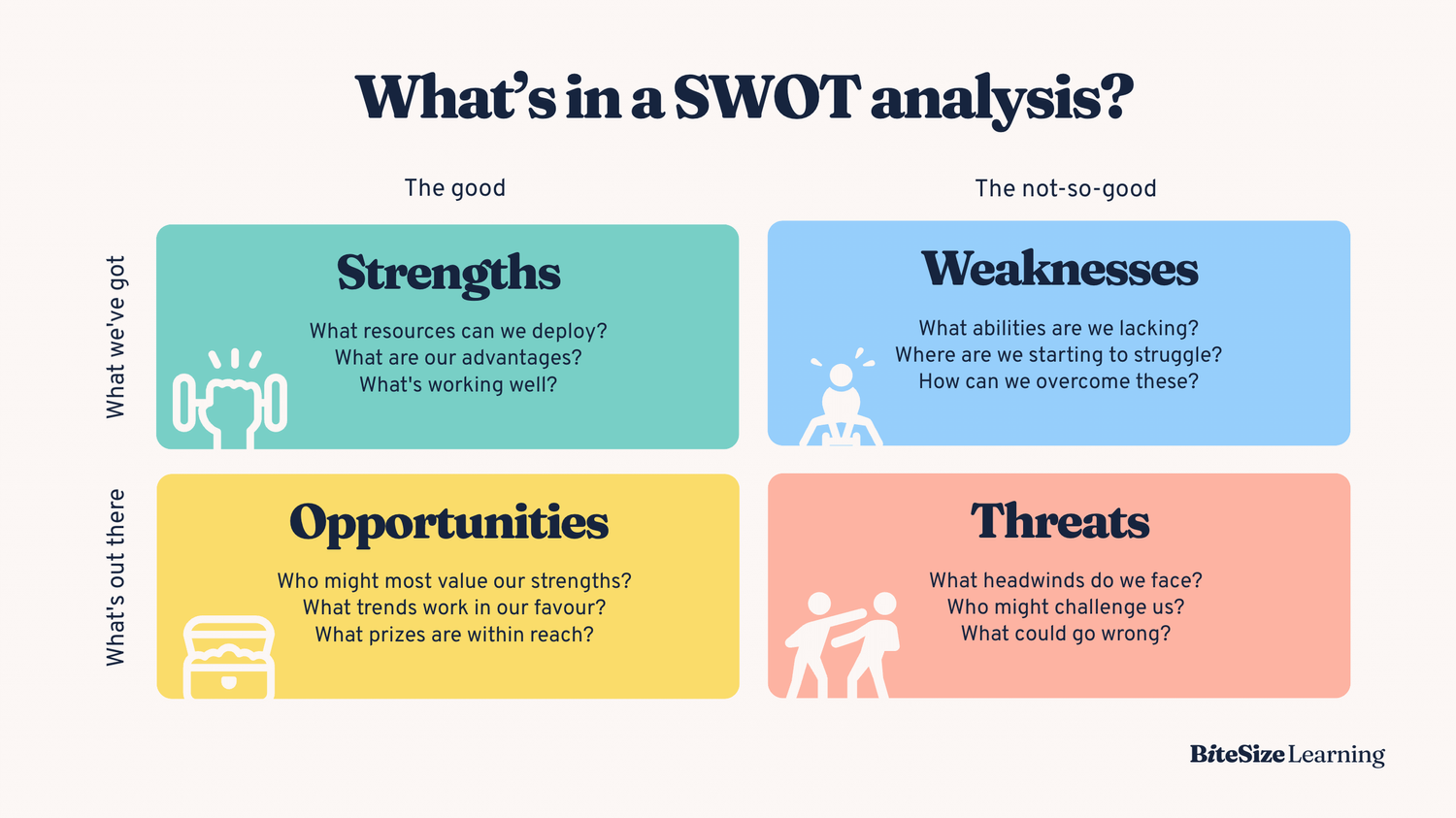
Exit Strategy
It's also wise to create an exit strategy, mapping out how you might sell or transfer your small business in the future—a crucial step for long-term planning and tax considerations. Corporate Finance Institute has a resource article (4-minute, easy read) covering everything you need to know about exit strategies.

Understanding Taxes
Understanding your tax obligations from the outset is essential, including income tax, sales tax, and any industry-specific taxes like payroll taxes if you plan on hiring immediately.
Taxes can sometimes be tricky, so I recommend you check out Hartford's guide on business taxes for beginners. It'll save you the headache.
Also, remember to invest in good accounting software like QuickBooks to manage your finances and expenses regarding tax filing. Trust me, it'll spare you the stress and dread when it's time to pay taxes.
Financial Plan
Lastly, your financial plan will explain the numbers and present projected financial statements to show investors your forecasted profits, expenses, cash flow, and budget for your small business.
This allows investors and company management to assess long-term business growth and revenue potential. Understanding your startup costs is key to setting realistic financial goals, so check out this resource by NetSuite on creating a financial plan for your small business.
MySBA Learning Resource
Remember, support for new small business owners is available through SBA training programs and additional resources. Check out MySBA Learning, a free learning platform for entrepreneurs offering information to help you grow your business.
Securing Funding for Your Business
You might be asking yourself, "How the hell do I start a business without money?"
Good news: there's loads of financial options to start and grow your business.
Explore avenues like personal savings, business loans, business grants, angel investors, or crowdfunding. You should also consider opening a business bank account.
Check out our article (Yeah, personal plug. What about it?) on the best funding resources for small businesses! We cover options like SBA loans, VC firms, crowdfunding, grants, and more.
If family and friends can’t provide enough cash for initial operational expenses, there are many business capital sources, like SBA loans and angel investors (check out USA Angel Investment Network). Loans are also available from traditional banks and credit unions.
Weigh the costs and benefits of different lending terms to find the right match for your funding needs. Consider payback time, collateral demands, and future cash flow impact.
Legal and Regulatory Steps
Once your plan is set and funding secured, formalize your business. This includes legal business registration and protecting your investment through business insurance.
Compliance details and filing requirements exist for forming legal structures, managing taxes, protecting business assets, and complying with various regulatory agencies.
Securing essential licenses and permits, including an Employer Identification Number (EIN) and a state tax ID number is important. An EIN comes in handy especially when you open your first business bank account and business credit card. The specifics depend on your chosen legal structure.
Registering and Protecting Your Business
Registering your business is legally required. Choose a business structure—sole proprietorship, partnership, limited liability company (LLC), or corporation. If you're going to be a one-man show, you should file as an LLC for your small business.
If there's a team of you, consider researching options on the best business structure Filing as an LLC has become common for small businesses.
Check out this video by LYFE Accounting on choosing the best entity for you.
Each structure affects personal liability and taxes. Registration is usually managed at a state and sometimes local level, requiring compliance and filing specific forms.
Consult an attorney, financial expert, CPA, and banking specialist for a proper business assessment. Find the nearest Small Business Development Center (SBDC) near you. Local SBDCs can offer you free business training and education on everything, including taxes, finances, legal, and more.
And don't forget: apply for an Employer Identification Number (EIN) and open a business bank account.
Protect your business with insurance. A business owner’s policy (BOP) covers risks and provides peace of mind, and the right business insurance protects your venture from various legal issues. Check out this Business Insurance 101 guide to get started.
Launching and Growing Your Business
A strong business needs presence and protection. A professional website is crucial for first impressions, especially in today’s digital world.
You can build a sexy, professional website using drag-and-drop, no-code platforms like Duda or Wix. If you're more experienced in web development or can outsource someone to create your site, definitely give WordPress a try.
Fun fact: I created Poderoso Media using Duda. It's 100% beginner-friendly, easy to use, and comes with customizable templates. If you have any questions about Duda or need help, contact me!
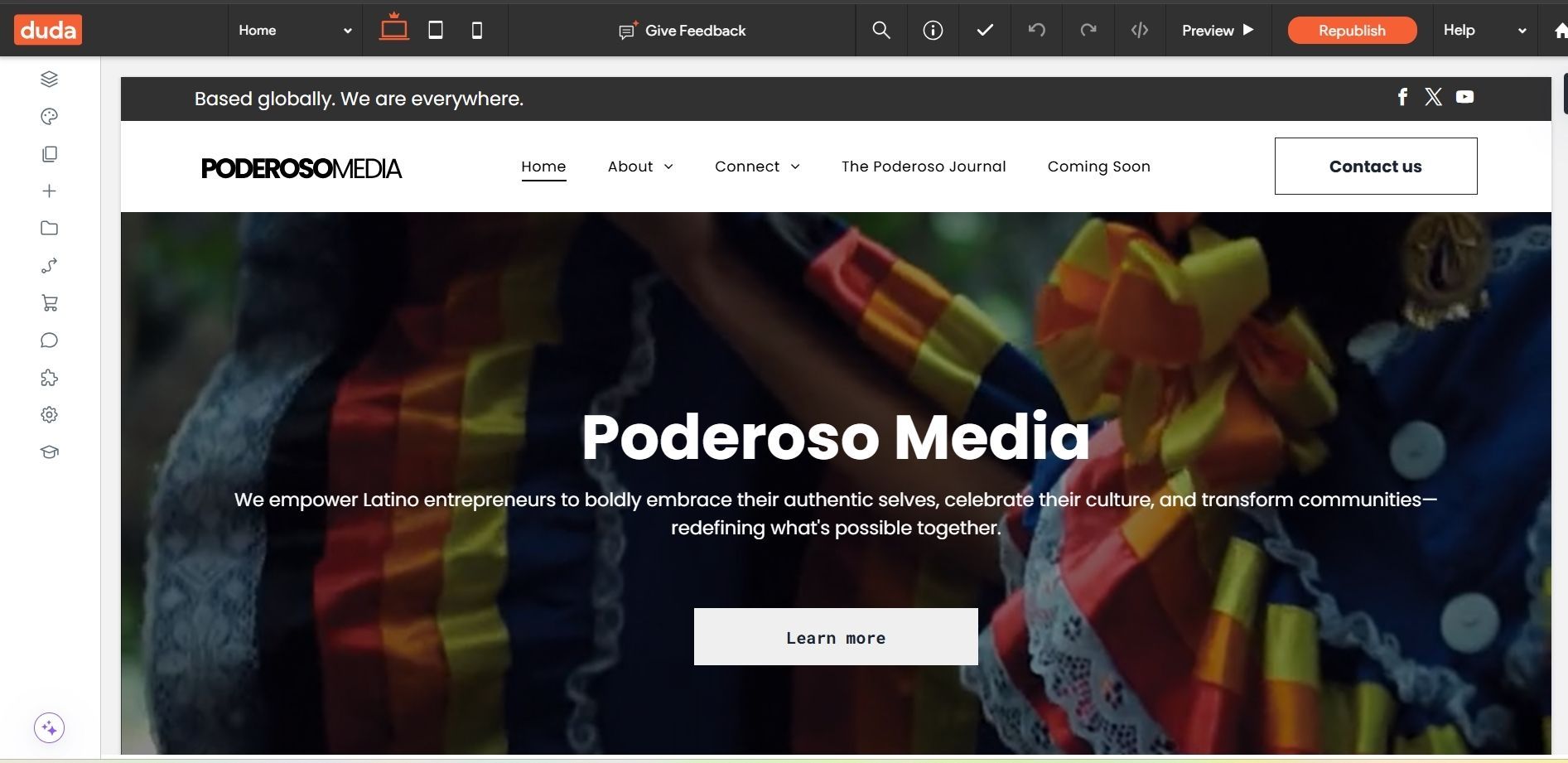
Listing your company in online search directories and on social media can boost early visibility. If you use email marketing to engage customers, ensure CAN-SPAM compliance. Be ready to manage and hire employees as you grow.
Building Your Brand and Marketing Strategically
Brand visibility can include a professional website or social media profiles and a detailed marketing strategy. Social media will be your biggest leverage: completely free and organic (assuming you don't use paid ads) to reach your target audience.
It’s how many customers discover products. To nurture your customers, be active on social channels, promote sales events, and gather newsletter contact information.
To monetize your content, you can publish content about current news, resources, sales, and stories in your email newsletter. I recommend checking out Beehiv if you're interested in growing and monetizing your newsletter for your business.
Business Resources
Here's a recap of all the resources mentioned in this article to help you start your business.
Market Research
- Survey Tools: Hub Spot's Free Form Builder and Google Forms.
- Focus Groups: FocusGroupIt and Recollective.
- Industry Insights: MarketResearch.com.
- Competitor Analysis: SimilarWeb.
Business Plan
- Asana guide on creating an executive summary with examples.
- SWOT analysis by Investopedia.
- Exit strategy for beginners by Corporate Finance Institute.
- Business taxes breakdown by the IRS.
- Creating afinancial plan by NetSuite.
Funding
- Comprehensive funding guide by Poderoso Media.
- SBA loans by SBA.gov.
- Angels USA Investment Network.
Legal/Insurance
- How to choose the right legal entity by LYFE Accounting (video).
- Understanding business insurance by Sentry.
Marketing
Free Resources
- MySBA Learning, a free learning platform by SBA for entrepreneurs.
- SBDCfor free business training and consultation.
- OtterAI for recording interviews and transcripts (free version available).
Now You Know How to Start a Business
Learning how to start a business is a journey. It demands passion, resilience, and an understanding of the necessary steps. Each step is vital to your business's success, from idea generation and validation to navigating legal requirements and securing funding.
Understanding the business process is key to unlocking success in the competitive business world! It's the difference between thriving and, well, failing.
As a business owner, you have the power to choose from a variety of business concepts and business models. Don't be afraid to tap into creativity and find what works best for you!
Remember, your business journey is a marathon, not a sprint! You're in this for the long haul, and with determination and perseverance, you'll reach your goals.
FAQs
How do I start a business with no money?
Start small and get creative. There are many ways to start a business with no money, especially in today's age with the internet and social media.
Here are a few ideas to consider:
- Service-based business: Offer services like freelancing, consulting, and coaching in your field or industry that don't require an initial investment.
- Partner up: Collaborate with friends, family, and like-minded people to share resources and expertise.
- Free resources: Utilize free online tools, social media, and networking events to learn and promote your business.
- Bootstrap: Start with minimal expenses and reinvest profits to grow your business.
- Crowdfund/Fundraise: You can crowdfund and fundraise to raise money for initial start-up costs for your business using platforms like GoFundMe and Kickstarter.
How can a beginner start a business?
By taking it one step at a time:
- Identify your passion: Choose a business idea that aligns with your passion and expertise.
- Research and plan: Learn about your target market (market research), create a business plan, and set goals.
- Start small: You can begin by offering one service to test the waters and gain feedback and experience.
- Get help: Find mentors (SCORE), check out free online resources (SBA learning), and connect with local business organizations for support (I found tons of free business resources with the Latin Chamber of Commerce of Las Vegas and The Vegas Chamber of Commerce in my city.)
What is the cheapest business to own?
"Cheap" is subjective. Your cheap is way different from my cheap. However, if you're looking for affordable business options, start an online business.
This can look like starting a blog with a low-cost website and monetizing with advertising, affiliate marketing, or sponsoring content. You can become a virtual assistant through UpWork, supporting businesses with administrative tasks email management, social media management, and data entry.
There's lots of options to explore. Consider checking out these 25 affordable business ideas by Business News Daily.
How to start a business that's free?
Technically, there's no such thing as starting a "free" business. But if you're learning how to start a business that's basically free and minimal cost, look into content creation and social media marketing.
If you have a phone and know how to use and create content on social media, you can offer services to businesses and brands looking for someone to manage their social media marketing.
Check out our other articles!

